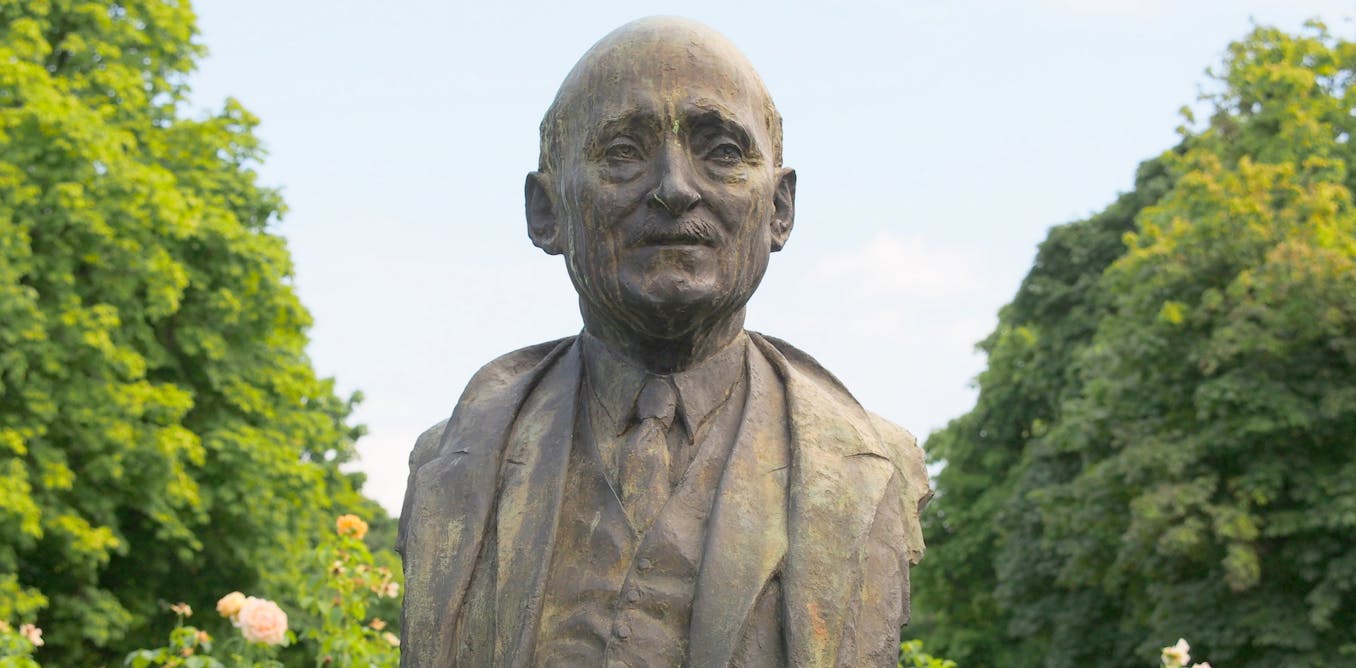9 May 2025 marked the 75th anniversary of the Schuman Declaration, the proposal by French Foreign Minister Robert Schuman (1886-1963) to pool the production of coal and steel – vital raw materials for Europe’s industry and economy – with Germany. This was done through the Economic Coal and Steel Community (ECSC), and though they did not know it at the time, the creation of this market planted the seeds that would eventually grow into the European Union (EU).
Given the current climate of economic turmoil, this may seem an inopportune moment to remember such an anniversary. However, our current geopolitical scenario makes it all the more important to remember the enormous significance of the integration process sparked by the Schuman Declaration, both for Europeans and for the world at large.
Read more:
US-China tensions are an opportunity – the EU could become the world’s third great power
Peace and reconciliation
The ECSC’s proposal marked a major step towards reconciliation for France and Germany, two enemies who had been at war three times between 1870 and 1945: the Franco-Prussian War (1870-1871), the First World War (1914-1918) and the Second World War (1939-1945).
It was time to pursue lasting peace between these historically bitter rivals, one based on economic ties and mutual interest. It worked, so much so that the ECSC became the starting point for the “Franco-German axis” that still underpins European cooperation to this day.
Indeed, when he received the new German Chancellor Friedrich Merz at the Elysée Palace on 7 May 2025, French President Emmanuel Macron made reference to the Franco-German “réflexe” – the natural instinct for the two countries to cooperate.
Moreover, the seed planted by the Schuman Declaration bore fruit in the form of a long period of peace in Western Europe – there has never been war between EU member states. This is an unquestionably huge achievement for a territory that had been in an almost permanent state of war since the fall of the Roman Empire.
After this start, France and Germany invited the other democratic countries of Western Europe to join their project. Italy, Belgium, the Netherlands and Luxembourg accepted, and the Economic and Monetary Union (EMU) would form the next step in shaping today’s European Union.
A shared project
In 1953, three years after the Schuman Declaration, Europe’s nations sought to strengthen their economic and trade agreement with a political and institutional foundation. To this end, they considered creating the European Defence Community. However, the treaty drafted by Alcide De Gasperi, who served as Italian Prime Minister from 1945 to 1953, was rejected by the French National Assembly (even though it had been originally suggested by the French).
The impetus for a common defence came from the existential threat that the Soviet Union posed to European security. Today history is repeating itself, as Russia’s ongoing invasion of Ukraine is fuelling the need for Europe to mount a common defence.
The difference now is that EU member states have decades of experience in cooperating with one another – the decision by European leaders to use EU funds to finance common defence-related projects is proof of this. Without the creation of the ECSC, and all it stood for, such an agreement would be unthinkable.
Read more:
Europe’s rearmament is moving fast – it must not overlook these three vital areas
European cooperation
From the outset, the ECSC was a project of European cooperation. This cooperation was openly promoted and supported by the United States through the Marshall Plan and the Organisation for European Economic Cooperation (OEEC), known today as the Organisation for Economic Cooperation and Development (OECD).
This economic cooperation, which eventually took the form of the EMU, made it possible to put an end to the market fragmentation that had been so damaging to Europe after the fall of the Austro-Hungarian Empire. As early as 1926, the Austrian politician and Count Richard von Coundenhove-Kalergi was asking the question “how can European companies compete with American ones if they operate in a market divided into sealed-off compartments, as opposed to the large single market in which their American rivals operate?”
Thanks to the process of economic integration launched by the Schuman Declaration, this disadvantage has been significantly reduced. European companies owe much of their competitiveness to the continental base that the EMU has provided.
Moreover, having achieved such integration may now give Europeans – if they are able to speak as one – the ability to negotiate in the multipolar world of economic and political giants that is currently taking shape.
None of this would have been possible if Jean Monnet, then Planning Commissioner in the French Government, had not proposed the idea of creating the ECSC to Minister Robert Schuman, and if Schuman had not had the vision, and the boldness, to present it in the form of the Schuman Declaration. As Europeans we owe our present, and quite possibly our future, to this decision.



